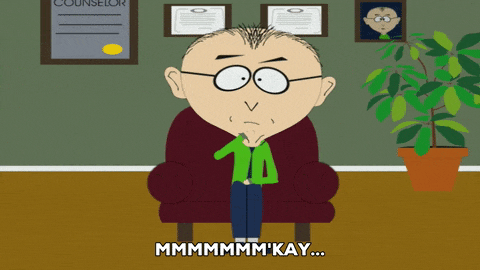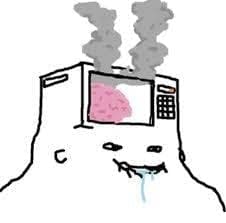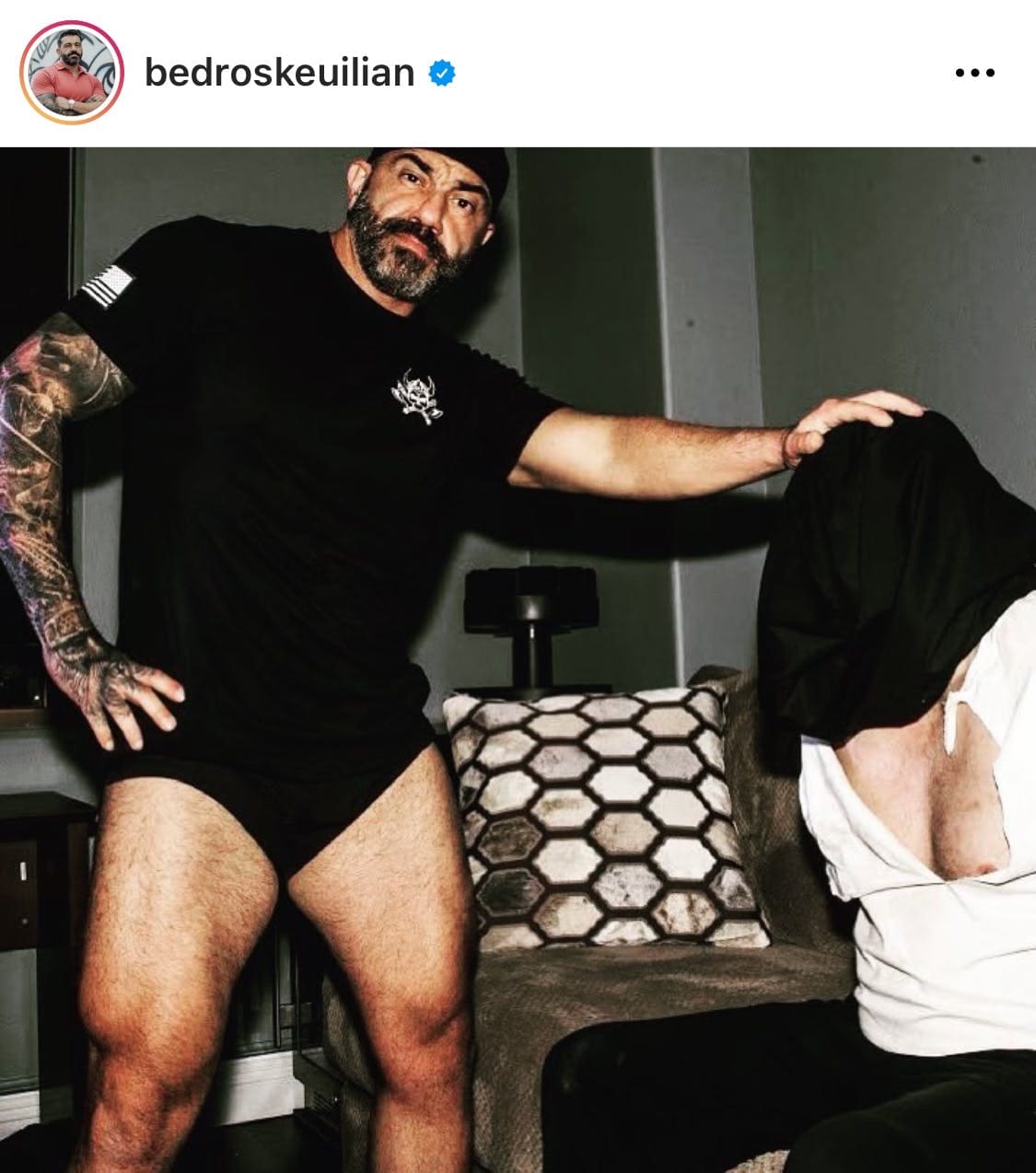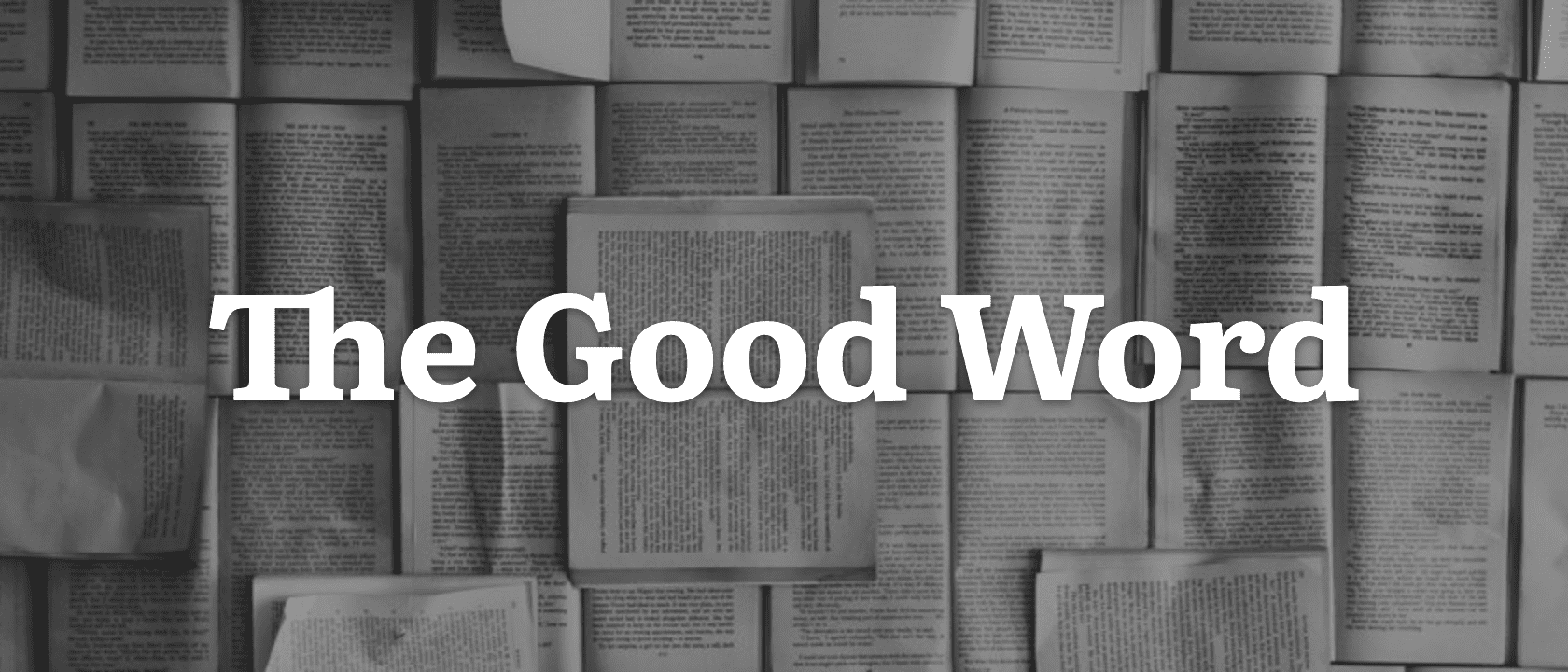The speed of one’s reading has turned into a status symbol for some. The idea that you can plow through books strokes an ego. But the gurus or people at business events boasting about reading a book a day, are no different than the type of guy who hangs testicles off the back of his truck.
It’s sciolism done out of insecurity and compensation.
Sciolism?
A superficial show of learning.
Many courses, books, and instructors trumpet speed reading secrets. It paints a romantic picture that we become Will Hunting from Good Will Hunting. We learn to flip through pages and maintain superior comprehension.
On the other end, we have sciolist-style reading. Sciolists like Tai Lopez tell you to read a book a day. Others tell you to skim the contents of the book and find three core ideas. Or tell you to read a book inside an hour by hunting its key lessons. Speed reading and sciolist-style reading don’t work. Science shatters the former, critical thinking the latter.
Good reading is a skill we develop. If you read slow, embrace it. If you need to go over each sentence, or each word, do it. A good book, fiction or non-fiction, will keep you captivated. Reading isn’t a race or a competition. It’s there for your enjoyment and benefit.
When I read fiction, I follow Francine Prose’s advice. Her book Reading Like A Writer teaches you to read fiction word by word.
When I started reading fiction word by word, I noticed two things. One, with good fiction, it sucks you into the world. You distinctly remember scenes and characters. Two, I noticed purposeful slow reading increased my reading touch with non-fiction.
Touch?
Touch combines intentional reading at various reading speeds. I liken reading touch to driving through a beautiful countryside. At parts, you may pull over, get out of the car, and take in the scenery. In other parts, you may slow the car down, enjoy the scenery, but you’re still driving. And in some parts, you’re driving straight through. Naturally, each part requires different speeds. And as the driver, you do what you feel. And in this car, no one is ahead or behind you.
In short, if you read slow, embrace it.
And if a book bores you, put it down. If you find the story or the book’s premise terrible, no need to endure till the end.
If a book is over your head (often many of the Great Books), yet you sense the gravity of the ideas, then enjoy taking your sweet ass time.
Onward…
Asking the Right Questions
Asking the Right Questions: An expensive little book, but worth it.
It’s on Bryan Garner’s list of Critical Thinking Guides in Garner on Language and Writing.
Prior to Bryan Garner’s recommendations, I tried critical thinking books. These books featured Logic (like X is Y therefore all Y is X), Fallacies, and “Winning Arguments.”
Some were ok.
The argument ones, many felt anecdotal and weak. Most were 300 pages of the author boasting on how he said the right zingers at the right time.
The books on fallacies and logic, most authors wrote to themselves.
On one end, you’d get:
Let’s keep it real simple. Here’s how you can use this on the fly in the real world. When someone states a claim that involves the premises of x + y = p and p – a =y therefore (p/y) + (p+a) refutes y. So clearly that means the claim that caffeine is a duck is fallacious.

Or on the other end, they’d list the fallacies and a quick description.
Yet none of that seemed to help. I didn’t remember anything. Plus someone merely labeling the fallacy and not engaging the argument does nothing. It’s like calling someone a hater.
Asking the Right Questions by M. Neil Browne and Stuart M. Keeley does a remarkable job showing you how to engage with what the other person says. Since reading it, it’s helped me in conversations and reading.
The book gives a guide to ask specific questions, and how to spot common fallacies.
How the authors teach, you don’t necessarily spot the fallacy, you instead sense what’s off. And it’s not all about spotting bad arguments. It teaches how to engage with what’s being said or what’s written.
It teaches these core questions:
- What’s your proof?
- Where’s the evidence?
- Are you sure that’s true?
- How do you know that’s true?
- Can you prove it?
Also plenty on silent evidence, aka, what’s not being said.
I enjoyed that the authors understand that life isn’t black and white. They don’t teach ha! gotcha!…aKsHuAlLy… techniques. Nor do they teach you how to be a smug dork that says… source!?
They offer those questions in a salt-of-the-earth manner. You engage emotional or logical topics with a backbone but do so with tact and sound reasoning.
Another side-effect lesson, I found myself listening better. And if the topic turned to something where premises and beliefs were stated, I could engage someone on the opposite side better.
A great book.
It’ll benefit your conversations, reading, and bullshit detector. Plus, if you’re unsure if an expert is legit or not, this book will help.
Basic Economics by Thomas Sowell
Basic Economics: I keep saying, and will keep saying, I’m embarrassed I never read Sowell before.
Why?
I argue he’s one of the greatest thinkers of our time.
When you read him, and find out a bit more about him, his story and insight are enlightening.
I’m currently re-reading this book, slowly (now finished at the date of this article’s publication).
Very slowly.
I’m doing the analytical read.
Sowell argues from a place of evidence. He studies the evidence and results and builds his reasons.
While reading, I had a ton of ohhh… so that’s how that works moments. The book is on economics, but he masterfully shows how we experience it daily. Also, he strips away the rhetorical agendas of the media, left or right, and shows the truth and realities.
The book is packed with lessons.
A lot stood out to me. Too many lessons to share here.
But I’ll share two insights.
- Profits and Losses
- Individual Success
These insights tie to the Online Marketing, Direct Response, and Success Literature world.
Let’s look at Profits and Losses.
Sowell argues that losses are needed.
A business generally finds itself in the red either due to poor management or it’s losing to competitors (or sometimes regulations can kill an industry). Consumers deem something better, cheaper, or more technologically viable. Whereas behemoths like Amazon use losses to influence strategic decisions.
The online marketing world is full of losses. It’s rarely talked about, but generally, a “new” offer means the other offer went into the red. The marketing expenses in the aggressive camps of online marketing are astronomical. Once the ad dies, losses bury it.

“But I have losses like Amazon’s strategy!” says this online marketer selling info-products.
But what’s funny for these self-proclaimed warrior entrepreneurs with hustle mindsets, is that they double down on what created the losses in the first place. They imitate the losers: create new offers, launch more products.
It’s not to say that everyone goes bust in this world. A scant few scramble better than others. But the survivors are more than product launch businesses. They run cold-traffic businesses, publishing agencies, and have various back-end deals cooking.
Many online marketers blissfully ignore the information of the losses. And not just financial. The lifetime customer value for many online marketing companies, abysmal. Distinctly abysmal.
The so-called “lit” and “fire” direct marketers can barely keep or monetize a customer past a few days. And for the make money online gurus, constant reinvention under the guise of new ways to get rich, signals that they’re bleeding customers.
Individual Success
Sowell shreds the myth of income inequality.
The gist, income isn’t static.
Many politicians, academics, and media sources make it sound like the rich were born rich, and the poor, born poor. And that rising up to a higher income level is a rare story.
Sowell empirically details that most individuals, men, and women, from a variety of backgrounds, rise in income, and some to the heights of mega-wealth. Depending on the profession, the highly skilled often get paid the most (and of course, some idiots get lucky and paid a ton, but on the whole, higher-skilled equals higher pay – or higher demand).
Success gurus make a mystique of this rise. They love the story of from the depths of nothing… to the heights of riches!
But that story isn’t special.
It’s common.
Completely and utterly normal.
It’s as dull as dishwater.
I’m not sidelining someone’s journey to the heights of wealth or success. It’s a distinct part of human nature and our will to survive. Someone’s journey involves lessons and inspiration.
Yet gurus overplay it.
They overplay it by making it sound like you need them to translate the secrets. They make a mystique of individual success when it’s a rather normal thing.
For instance, take this trope: I was down to my last $100 living in my mom’s basement. Then I discovered this weird mindset hack….
Let’s ignore that it’s a formulaic trope.
Let’s consider the message.
Many young people are down to or don’t even have their last $100. But how many of those people end up staying in their mom’s basement or end up homeless without discovering that weird mindset trick?
As in, how common is it that if you don’t discover some secret trick, you’re relegated to working at the airport Quiznos for the rest of your life?
Success gurus preach as if you can’t rise from your station in life without secrets. To rise you need secrets, tricks, and a daily routine stricter than El Chapo’s at ADX Supermax Prison.
Why do they preach this?
Gurus love Marxist concepts on class.
I’m kidding.
But oddly, gurus follow the Marxist concepts of class.
They preach the rise narrative because it sells. And it’s a selling script that has been plagued with incessant one-upmanship.
It also ties to the old two-choice sales close you can stay stuck and poor or you can invest today and join the elite….
Sciolists sell the superfluous. The people paying those gurus are reaching to be better. A good thing. Yet instead of spending time and money on improving their skillset, they unknowingly waste time and money to pay a sciolist to get axiomatic advice:
- Work hard
- Face uncertainty
- Take risks
- Work on your skillset
- Have self-belief
- Self-discipline
Granted, the motivational aspect isn’t horrible. But if you need that much motivation for your career, that’s a whole other question.
Furthermore, as Sowell shows, the greatest financial successes result from a person being maniacally obsessed with the product. Consider modern-day successes, Steve Jobs and Jeff Bezos. Both were obsessed to the point of near insanity on the product. Go back in time, J.C. Penney and John D. Rockefeller, both hyper-obsessed on the product.
Whereas people hand over their self-determination to sit in a room to listen to a guru rehash Steve Jobs’s quotes. Then they get a whole bunch of downstream marketing tactics, mindset affirmations, and daily routine tips.
In reality, successful people aren’t sitting in that room. Nor are they lowering their dignity to fuel the bizarro fantasies of this sciolist:

“As an entrepreneur, you are the sum of the 5 people you hang around most. Make sure those five people are positive and for your vision.” – Bedros Keuilian
Why?
Successful people are too busy with their product or working on their skillset. And even if it’s not someone creating the next Amazon, again, most people rise in their professional world. A motivated person will work on their craft, take more risks, thus affording more chances at success
Now, as an aside, you might be saying, but Jim… a lot of successful people pay to be in masterminds or get coaches.
I see that.
But don’t forget the Michael Jackson Syndrome: certain rich people surround themselves with experts, coaches, and gurus. But it ends up complicating their life rather than “leveling up.”
My take, some people pay for professional hangers-on.
In short, respect the rise, but don’t make a mystique of it.
In sum, Sowell’s book is packed with insights and lessons. It provided a clearer lens to see the world. If you want to understand economic policy, trade, wages, rents, and more, you won’t find a better book.
Onwards to the latest haul:
I’m still down my Edmund Burke and political beliefs rabbit hole. Which has inspired many choices below.
John Adams by David McCullough: I watched the series on HBO. It was excellent. Adams in many ways cemented the way the current US Government is run.
The Thomas Sowell Reader by Thomas Sowell: A collection of essays, but self-explanatory why I chose him.
Discrimination and Disparities by Thomas Sowell: Yep, Sowell rocks.
Washington by Ron Chernow: I’ve heard great things about this book. After Basic Economics I plan to get to the Constitution and the Federalist Papers, then I plan to crack this one.
American Republics by Alan Taylor: A Tyler Cowen recommendation. I’ve learned a lot from Tyler, and I’ve enjoyed many of his book recommendations. His podcast and his blog opened new avenues for me. And as I said, he inspired me to check out Edmund Burke. He says Taylor is one of the best historical writers around.
The Forgotten Man by Amity Shlaes: The last email mentioned Coolidge by Shlaes. Coolidge was aces. And Shlaes hooked me with her writing style. This book details the Great Depression. And this book is a lightning rod among FDR fans for good reason: FDR exacerbated the Depression, the War pulled America out. And FDR fans hate that idea, deny that idea, but facts can be assholes.
Lyndon Johnson, Passage of Power by Robert Caro: Caro’s The Powerbroker is one of the greatest non-fiction works ever. And I mean up there with any work of non-fiction. This is the last book (a new one is supposedly being worked on) in Caro’s Lyndon Johnson series. When the timing feels right, I plan to read the series in one go.
Wanting by Luke Burgis: I heard about this from Twitter, Tyler Cowen, and a National Review podcast. Once I finish my re-read of Basic Economics this will be next. It supposedly details why we want things, and how our desires aren’t independent but based on others.
The Depth of Winter by Craig Johnson: This is part of Johnson’s Longmire series. It’s about a sheriff in Wyoming. I tend to read this series between heavier reads.
The High Window by Raymond Chandler: Chandler put the hardboiled detective series on the map. His Marlowe character provided fuel for me to leave the crazy parts of Direct Marketing. Chandler is an icon. Read him.
The Terminal List by Jack Carr: I read about this one in a National Review article. It’s a bit of shot in the dark pick, but I saw it, it sounds cool, and I’m looking forward to it.
